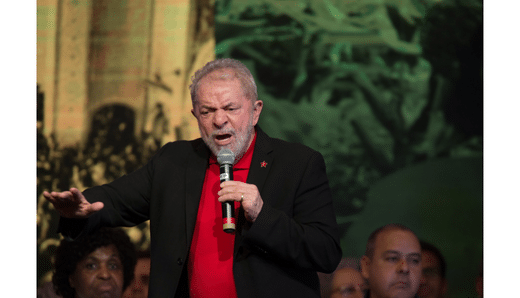Former president Luiz Inácio "Lula" da Silva is expected to have won the first round of Brazil's elections. In doing so, Lula defeated Jair Bolsonaro, the incumbent president, by more than five percentage points. However, the victory was celebrated far less euphorically than anticipated beforehand - as Bolsonaro scored well ahead of all polls up to that point. Therefore, for the second round, on 30 October, the cards are certainly not yet shuffled.
In the coming weeks, a rock-hard battle will unfold between Lula (48,43%) and Bolsonaro (43,20%). Both will try to win voters from other candidates during the first round. Supporters of leftist Ciro Gomes (4.16%) and centre-right Simone Tebet (3.04%) are key in this regard.
Lula's comeback
Lula, Brazil's president from 2003 to 2010, is immensely popular among a significant portion of the Brazilian population due to his social programmes and economic reforms. However, his party, the Workers' Party (PT), collapsed over the past decade due to several high-profile corruption cases. In these, Lula was also convicted, served time in prison, but the conviction was overturned by Brazil's Supreme Court in 2021. With his sudden comeback, many therefore expected the popular Lula to end Bolsonaro's controversial presidency.
The Bolsonarismo
However, Bolsonaro still has much of Brazil's population behind him. Four years of wrangling with political institutions, a dramatic corona policy that killed seven hundred thousand Brazilians, and extreme deforestation of the Amazon have not yet driven voters away from the Bolsonarismo. Many are still disillusioned by the PT and trust the ultra-conservative, erratic Bolsonaro with his dogmas around faith, the homeland and the family. As in Italy, where Giorgia Meloni on a similar platform recently a rumoured election victory booked, a reactionary political agenda appears to be an alternative for many during socio-economic crises.
The polls and the far right
In the style of Trump, Bolsonaro rants about polls and possible electoral fraud - no doubt also a major theme in the run-up to the next round. Many fear that Bolsonaro will declare the 30 October result as illegitimate in the event of a loss - no doubt causing great unrest.
In the battle against polls, the far-right in Brazil can at least chalk up a victory. Against all odds, delegates of his Liberal Party (PL) won in several, large districts. For example, in São Paulo, where the leftist candidate França led by 17 percentage points in the polls against the "Bolsonarista" Marcos (PL). However, Marcos won this race by 50-36 per cent. In many other areas, polls were also wrong by 20-30 percentage points. Nationwide, the picture was quite similar. Usually reliable polls expected a 34-37 per cent result for Bolsonaro. His final 43 per cent thus fits into a trend where polls are struggling to measure support for the far-right. This was the case with Bolsonaro's election in 2018, as well as support for Trump in 2016 and 2020.
As such, eyes will be on Brazil in the coming weeks. For social, inclusive, and climate-friendly politics, a re-election of Bolsonaro would be a major blow. Supporters of Lula fear violence and in many cases already cannot safely walk the streets in campaign clothes. It is therefore crucial that Brazil's elections are fair, without further erosion of Brazilian democracy by autocrats and illiberal populists.
Sources: NRC; Volkskrant; The Guardian
Photo: Lula in 2017 - Flickr




